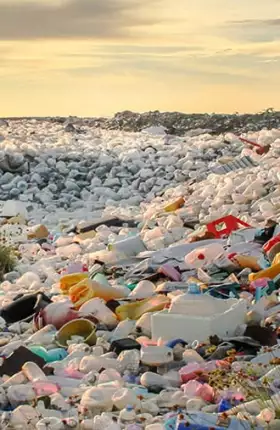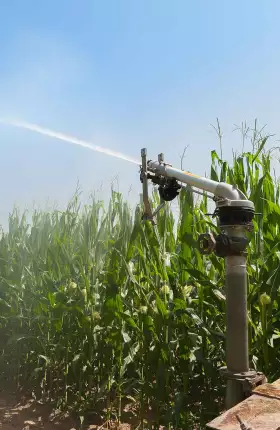Plastic pollution has been around for only a few decades, but its impact on the ocean is reaching crisis proportions. An estimated 11 million metric tons of plastic flow into the ocean each year, and that volume is forecast to triple over the next 20 years.
To reverse this trajectory, many of the world’s leading consumer packaged goods and retail companies are calling on governments to negotiate a United Nations (UN) treaty on plastic pollution . This is not another coalition or multistakeholder initiative; rather, it’s an opportunity for businesses to have a voice in the key vote on a potential treaty at the fifth session of the UN Environment Assembly (UNEA-5) in February 2021.
Why a Treaty Is Urgently Needed
Corporate and government action to address plastic pollution is at an all-time high. The number of voluntary initiatives and national regulations aimed at tackling this issue has more than doubled in the past five years—but still the plastic pollution tide keeps rising. There are several reasons for this:
- Voluntary initiatives alone cannot drive the required system change. The many existing joint initiatives and the unilateral work of pioneering companies are encouraging quick action on plastic pollution, but they lack the scale necessary to trigger system change.
- Many existing policies aren’t targeting the right problems. Many governments have imposed regulations, but they often fail to target the real sources of plastic pollution. For example, two-thirds of countries with legislation on plastic items regulate only single-use plastic bags; yet, these bags account for just 7% of plastic items found in beach cleanups.
- Baseline data is lacking. The lack of baseline data on plastic waste at global, national, and business levels limits the ability to monitor progress and evaluate the effectiveness of current measures. Currently, just 39% of countries publicly report waste data.
- Key geographies lack foundational waste management capabilities. Only one-third of plastic waste is properly managed in the top 20 countries estimated to be the main sources of mismanaged plastic waste. Focused efforts in these countries represent an important opportunity to address the large-scale release of plastic into the ocean.
Given the urgency and scale of the challenge, as well as the need to amplify current efforts, a new and more ambitious approach is required.
Four Critical Elements of a UN Treaty
A UN treaty on plastic pollution, whereby governments commit to a coordinated set of actions and policies, can help put the world on a path toward a circular economy for plastics. Critical elements of the treaty should include:
- Harmonized regulatory standards and common definitions across markets
- Clear national targets and action plans that deliver on the treaty’s overarching objective
- Common reporting metrics and methodologies across the plastic value chain
- Coordinated investment approaches to support innovation and infrastructure development in key markets
The Business Imperative Is Clear
A UN treaty on plastic pollution would benefit businesses as well as the environment. It would:
- Reduce complexity with regard to the supply chain and compliance. The current regulatory landscape for plastic pollution is not consistent among and within countries, and it’s increasingly complex and costly for companies to navigate. A UN treaty would help companies reduce their supply chain costs by establishing product and packaging standards across markets and facilitating compliance with a consistent set of policies.
- Stabilize the policy framework to plan investments and reduce compliance costs. Currently, fast-changing and unpredictable plastic regulations result in high compliance-scanning costs and complexity for companies. A UN treaty would provide a common policy framework with targets and action plans, giving companies long-term visibility and stability to plan and invest.
- Simplify reporting across the plastic value chain. An agreed-upon set of reporting metrics could be applied consistently across geographies and industries—trickling down from the national level to the corporate. Harmonized reporting would reduce the costs of aggregating data from numerous partners, increase transparency, and help manage reputational risks.
- Improve coordination across the value chain. Several commitments made by major companies to reduce the amount of plastic in the ocean rely on a number of elements across the value chain that those companies cannot control—such as waste collection at scale and significant increases in the use of postconsumer recycled-plastic content in packaging. Although many companies already invest heavily in trying to meet their commitments, they need broader systemic changes to succeed.
Support the Call for a UN Treaty on Marine Plastic Pollution
Plastic pollution is the foremost international environmental problem in the world today for which there is no UN treaty. But the calls for such a treaty—by citizens to UN member states and now businesses—are growing louder. At the upcoming UNEA-5 meeting, member states will have the opportunity to commence negotiations on a treaty about plastic pollution.
To join those calling for a global agreement, please sign the business manifesto .
To find out more, review the report The Business Case for a UN Treaty on Plastic Pollution , developed in partnership by BCG, the Ellen MacArthur Foundation, and the WWF.









